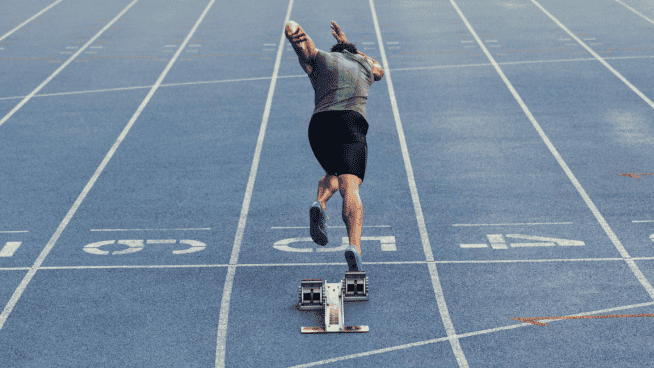Hydration Strategies for Athletes Looking to Boost Performance
Hydration is a crucial aspect of athletic performance, and as the deep summer nears and the weather warms, it becomes increasingly important to stay hydrated for both overall wellness and to ensure you are performing in tip-top shape. While those who aren’t very active can maintain a somewhat balanced hydration level without much thought, athletes require much more planning and preparation to stay ahead of the competition. Proper hydration can help athletes maintain their energy levels, prevent cramps and fatigue, and improve their overall performance. In this article, we will explore the importance of hydration for athletes and provide tips for staying properly hydrated.
Why Hydration Matters for Athletes
When athletes exercise, they lose fluids through sweat. If they do not replace these fluids, they can become dehydrated, which can lead to a variety of negative effects on their performance. Dehydration can cause muscle cramps, fatigue, reduced endurance, and impaired cognitive function. It can also increase the risk of heat exhaustion and heat stroke.
Proper hydration, on the other hand, can help athletes perform at their best. When athletes are properly hydrated, they can maintain their energy levels, prevent cramps and fatigue, and reduce their risk of injury. Hydration can also help athletes recover more quickly after exercise.
How Much Water Do Athletes Need?
The amount of water athletes need depends on a variety of factors, including their body weight, the intensity and duration of their exercise, and the climate in which they are exercising. As a general guideline, athletes should aim to drink at least half of their body weight in pounds in ounces per day.
In addition to daily fluid needs, athletes should make sure they are drinking before, during, and after exercise. We generally recommend at least 16-20 ounces of water coming 2-3 hours before exercise and 8-10 ounces of water 10-20 minutes before exercise. During exercise, athletes should aim to drink 7-10 ounces of water every 10-20 minutes. After exercise, athletes should drink enough water to replace the fluids they lost during exercise. A method we’ve used for years when it comes to warm weather exercise is tracking pre and post workout bodyweights accordingly. For every 1 pound lost during the water, the athlete asked to consume 20 oz of water. This helps ensure that the athlete replenishes what was lost through sweat but also allows them to get ahead on their hydration for recovery and activities to come later on or on the next day.
Tips for Staying Hydrated
Drink Plenty of Water: The most obvious way to stay hydrated is to drink plenty of water. Athletes should aim to drink at least half of their body weight in pounds in ounces of water per day and more if they are exercising.
Eat Hydrating Foods: Some foods, such as watermelon, cucumber, and oranges, are high in water content and can help athletes stay hydrated.
Avoid Dehydrating Drinks: Certain drinks, such as soda, coffee, and alcohol, can dehydrate the body. Athletes should avoid these drinks, especially when training or competing.
Monitor Urine Color: A good way to monitor hydration levels is to check the color of urine. Clear or light-colored urine indicates proper hydration, while dark-colored urine may indicate dehydration.
Hydration is a crucial aspect of athletic performance. Proper hydration can help athletes maintain their energy levels, prevent cramps and fatigue, and improve their overall performance. By drinking plenty of water, eating hydrating foods, avoiding dehydrating drinks, monitoring urine color, and using a hydration system, athletes can stay properly hydrated and perform at their best. Remember to drink water before, during, and after exercise to ensure your body stays hydrated and ready to perform. Sweating causes a loss of electrolytes like potassium, magnesium, sodium, and calcium, which play a pivotal role in muscle function and fluid balance. Because of this, excessive sweaters may also need to consume additional sports drinks or added hydration/ electrolyte supplements that can be mixed into water under the guidance of a registered dietitian.
RECOMMENDED FOR YOU
Hydration Strategies for Athletes Looking to Boost Performance
Hydration is a crucial aspect of athletic performance, and as the deep summer nears and the weather warms, it becomes increasingly important to stay hydrated for both overall wellness and to ensure you are performing in tip-top shape. While those who aren’t very active can maintain a somewhat balanced hydration level without much thought, athletes require much more planning and preparation to stay ahead of the competition. Proper hydration can help athletes maintain their energy levels, prevent cramps and fatigue, and improve their overall performance. In this article, we will explore the importance of hydration for athletes and provide tips for staying properly hydrated.
Why Hydration Matters for Athletes
When athletes exercise, they lose fluids through sweat. If they do not replace these fluids, they can become dehydrated, which can lead to a variety of negative effects on their performance. Dehydration can cause muscle cramps, fatigue, reduced endurance, and impaired cognitive function. It can also increase the risk of heat exhaustion and heat stroke.
Proper hydration, on the other hand, can help athletes perform at their best. When athletes are properly hydrated, they can maintain their energy levels, prevent cramps and fatigue, and reduce their risk of injury. Hydration can also help athletes recover more quickly after exercise.
How Much Water Do Athletes Need?
The amount of water athletes need depends on a variety of factors, including their body weight, the intensity and duration of their exercise, and the climate in which they are exercising. As a general guideline, athletes should aim to drink at least half of their body weight in pounds in ounces per day.
In addition to daily fluid needs, athletes should make sure they are drinking before, during, and after exercise. We generally recommend at least 16-20 ounces of water coming 2-3 hours before exercise and 8-10 ounces of water 10-20 minutes before exercise. During exercise, athletes should aim to drink 7-10 ounces of water every 10-20 minutes. After exercise, athletes should drink enough water to replace the fluids they lost during exercise. A method we’ve used for years when it comes to warm weather exercise is tracking pre and post workout bodyweights accordingly. For every 1 pound lost during the water, the athlete asked to consume 20 oz of water. This helps ensure that the athlete replenishes what was lost through sweat but also allows them to get ahead on their hydration for recovery and activities to come later on or on the next day.
Tips for Staying Hydrated
Drink Plenty of Water: The most obvious way to stay hydrated is to drink plenty of water. Athletes should aim to drink at least half of their body weight in pounds in ounces of water per day and more if they are exercising.
Eat Hydrating Foods: Some foods, such as watermelon, cucumber, and oranges, are high in water content and can help athletes stay hydrated.
Avoid Dehydrating Drinks: Certain drinks, such as soda, coffee, and alcohol, can dehydrate the body. Athletes should avoid these drinks, especially when training or competing.
Monitor Urine Color: A good way to monitor hydration levels is to check the color of urine. Clear or light-colored urine indicates proper hydration, while dark-colored urine may indicate dehydration.
Hydration is a crucial aspect of athletic performance. Proper hydration can help athletes maintain their energy levels, prevent cramps and fatigue, and improve their overall performance. By drinking plenty of water, eating hydrating foods, avoiding dehydrating drinks, monitoring urine color, and using a hydration system, athletes can stay properly hydrated and perform at their best. Remember to drink water before, during, and after exercise to ensure your body stays hydrated and ready to perform. Sweating causes a loss of electrolytes like potassium, magnesium, sodium, and calcium, which play a pivotal role in muscle function and fluid balance. Because of this, excessive sweaters may also need to consume additional sports drinks or added hydration/ electrolyte supplements that can be mixed into water under the guidance of a registered dietitian.










